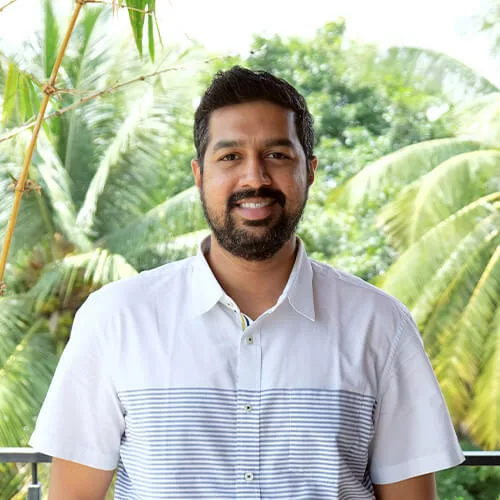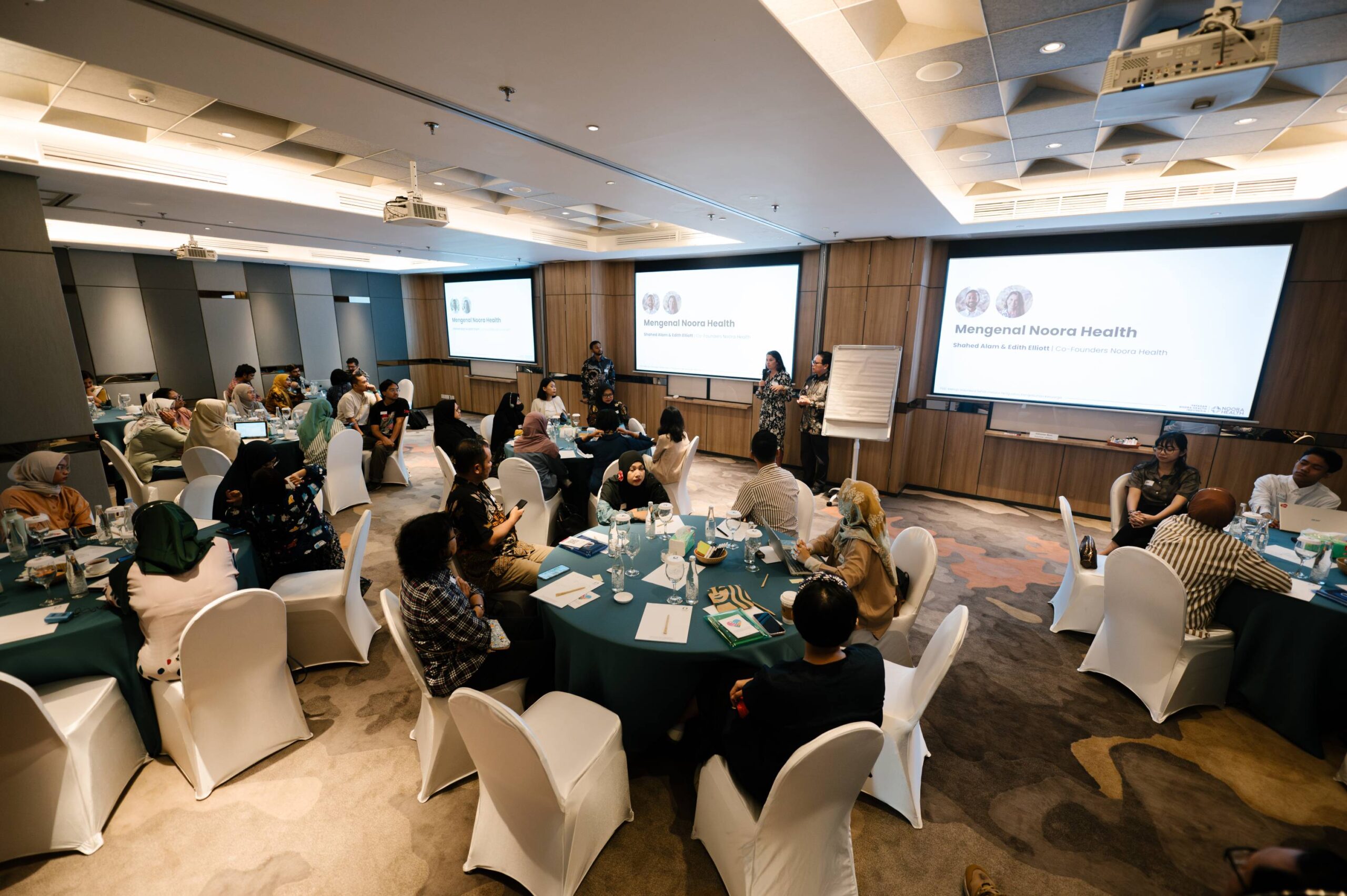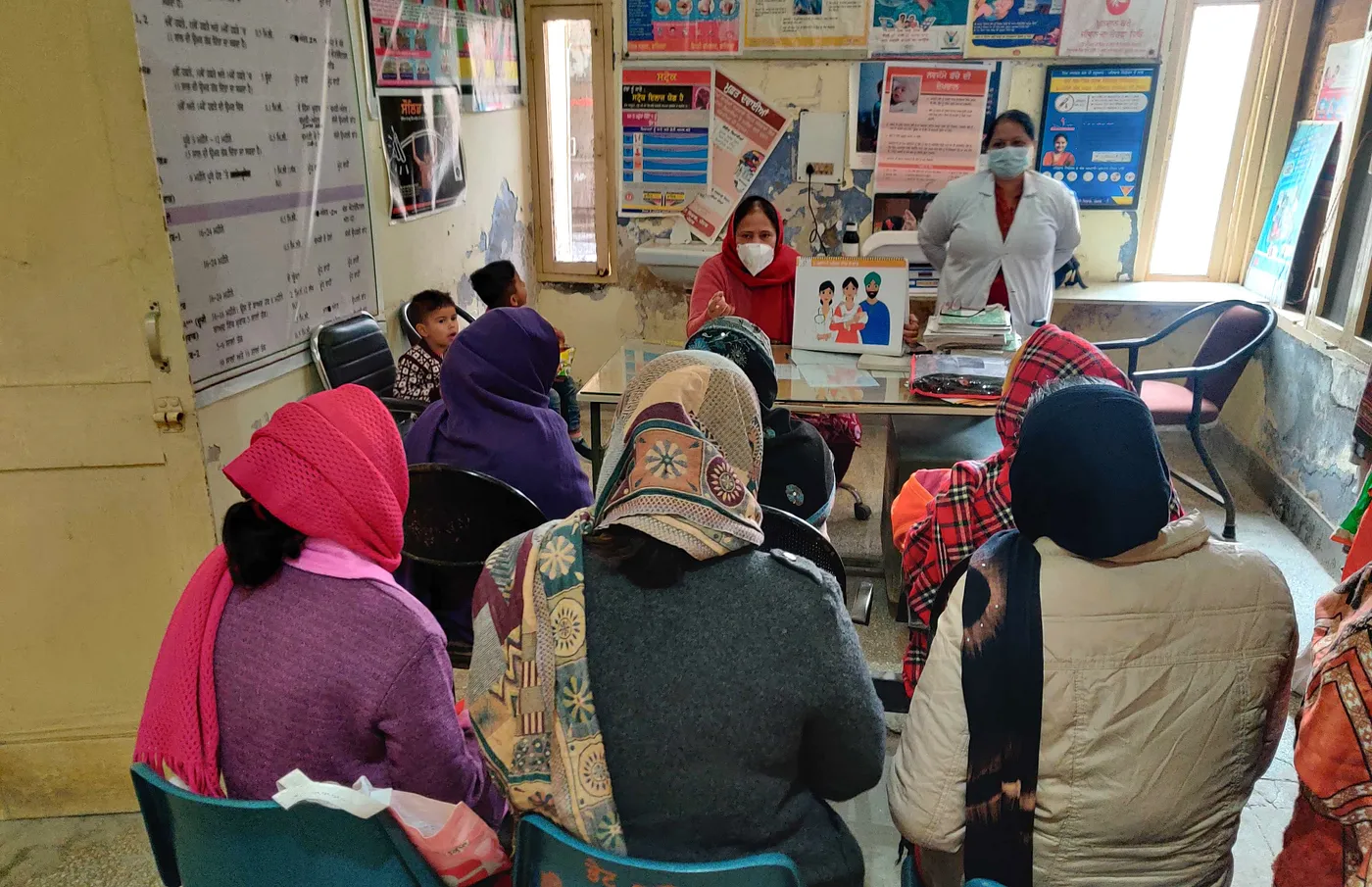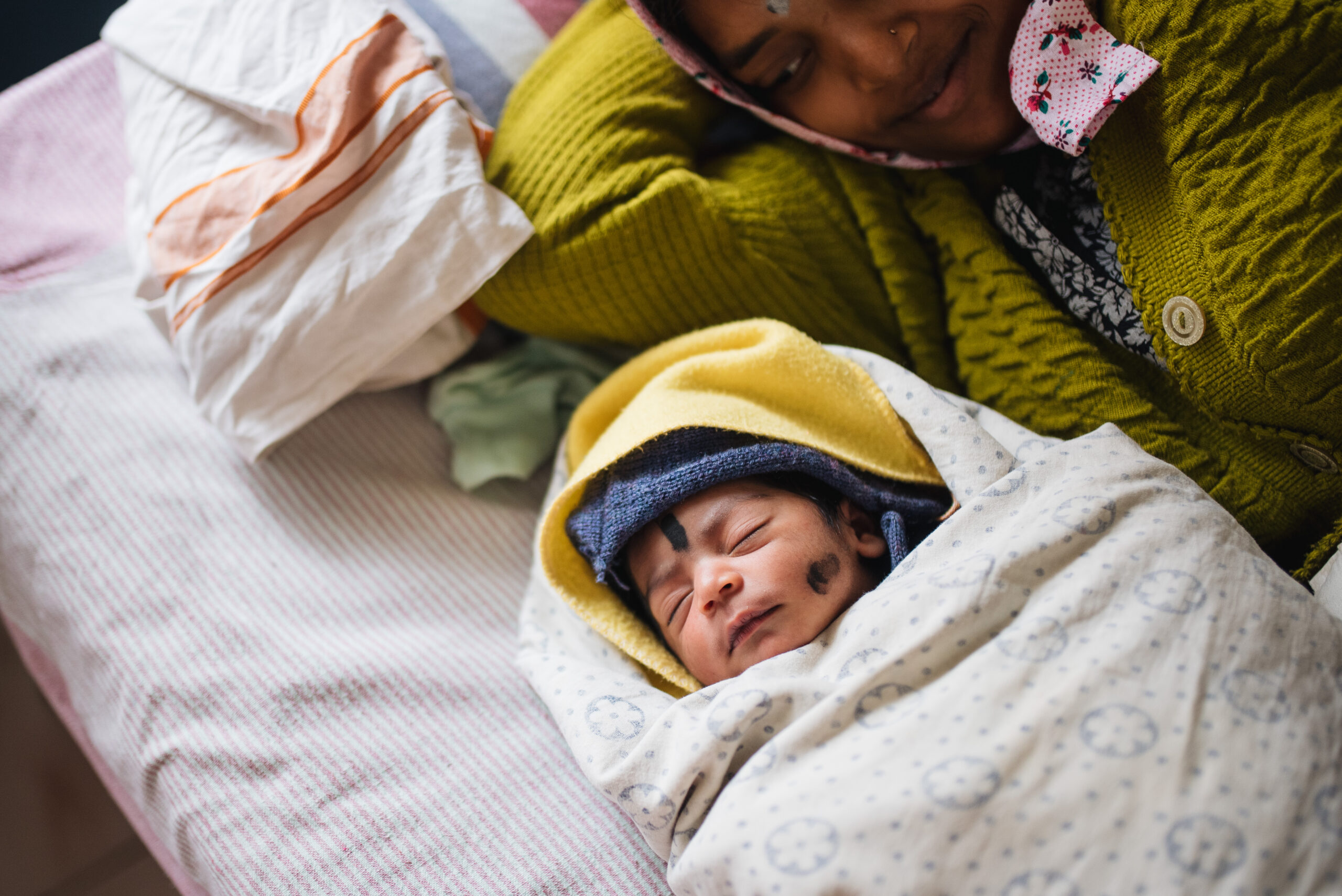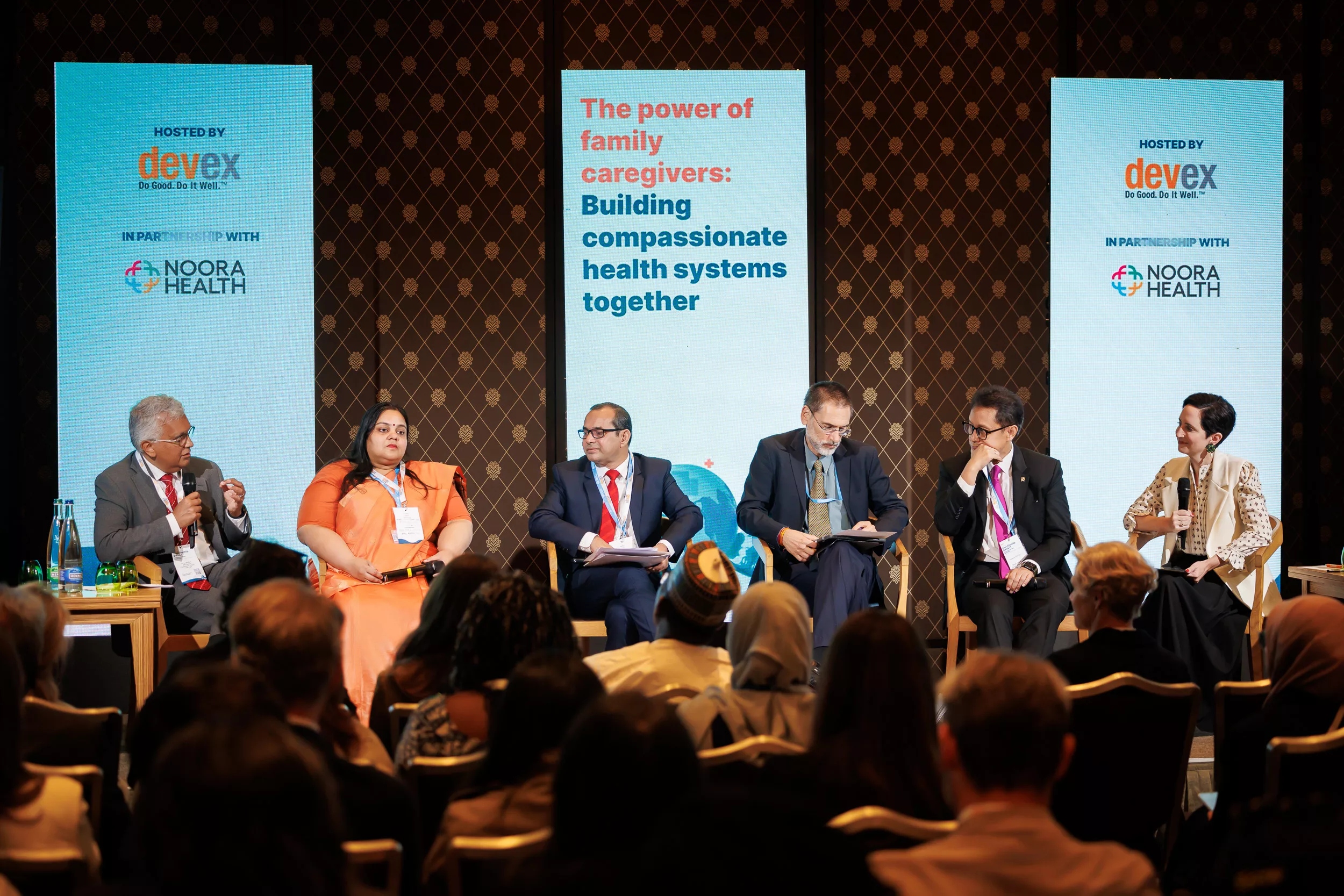
Putting caregiving on the global health agenda
Key moments and insights from our time at the 77th World Health Assembly.
In May, Noora Health made its debut at the 77th World Health Assembly (WHA) in Geneva, marking a significant milestone in our policy and advocacy journey.
Over the past decade, we’ve closely collaborated with public health systems across India, Bangladesh, and Indonesia to improve health outcomes by training family caregivers with the skills that they need to care for their loved ones. It’s been an exhilarating journey, filled with non-stop learning, reflecting, and gathering evidence on what works in different contexts. With substantial hands-on experience under our belt, we’ve come to an inflection point where we’re ready to amplify the movement for caregiver training on a broader, more global scale.
While we continue to prioritize our core organizational role of designing, developing, and implementing models of caregiver support, we also consider it critical to enable global health system actors, governments, and other implementing organizations to build on and utilize our learnings, methods, and tools to make caregiver training and support as the standard of care.
Taking a network approach to advocacy
The World Health Assembly is the World Health Organization’s (WHO) most significant annual forum, where national representatives of member countries, global health experts, and policymakers come together to collectively set health policies at the highest level. Among the many global health platforms, what sets the WHA apart is its country-led agenda. This ground-up approach means that member countries and their health ministries surface, propose, and pass resolutions that are rooted in their health needs and priorities. While these resolutions and policies may not be binding, they strongly influence WHO member countries to enact and implement them at the national level.
This unique member-country led prioritization of the agenda made the WHA the right place to complement and build on the advocacy conversations we’ve had (and will continue to have!) in Dhaka, Delhi, Jakarta, and beyond.
Sustained, long-term policy change rarely happens at one single node or juncture.
It takes effort and alignment across a network of actors at multiple levels — something we hope to play a part in orchestrating towards supporting caregivers globally.
Additionally, our work at Noora Health is multifaceted, cutting across different health conditions and levels of the public health system. Being at the WHA allowed us to lean into the broader health systems strengthening aspect of what we do — an opportunity we might not have had at a platform that is less intersectional or focused on a single issue.
Starting new conversations, building new relationships
Policy change of any kind is a multi-year journey; one that we’re only just embarking on. Going into the WHA, our goal was to build enthusiasm, awareness, visibility, and support for caregiver training by spotlighting the remarkable progress made by our country partners across India, Bangladesh, and Indonesia. Over time, as the experiences, learnings, and evidence from across these settings get integrated at a national level, we hope to see further evolution of guidance on best practices, and adoption by countries and regions outside of where Noora Health is active.
At the sidelines of the WHA, we partnered with Devex to co-host a panel discussion on the power of family caregiving and the crucial need for caregiver training and support in healthcare delivery. We were honored to have speakers from the Indian, Bangladeshi, and Indonesian ministries of health, alongside high-level representatives from the WHO. They shared how family caregiving has been transformative for health systems in their countries, how it can serve as a more prominent pathway to impact health outcomes, and how it can help create a more compassionate and gender-equal healthcare system.
Catch the full conversation here.
With more than 550 viewers tuning in both in-person and online across 44 countries, the conversation was one of the most highly watched — a reflection of how widely the cause of caregiver training and support resonates.
“In low- and middle-income countries, the health outcomes of chronic non-communicable diseases are often determined by families. For the first time, I witnessed family caregivers being prioritized at a global platform like the WHA,” shared Dr. Nobhojit Roy of The George Institute for Global Health in India, reflecting on the discussion.
Additionally, we also hosted an event for the Bangladesh delegation, which included the Health Minister, Health Secretary, and other key officials. Through this high-level engagement, supported by the Skoll Foundation, we shared updates and insights on our work in Bangladesh and gathered their strategic feedback and insights on how to grow and advance our mission.
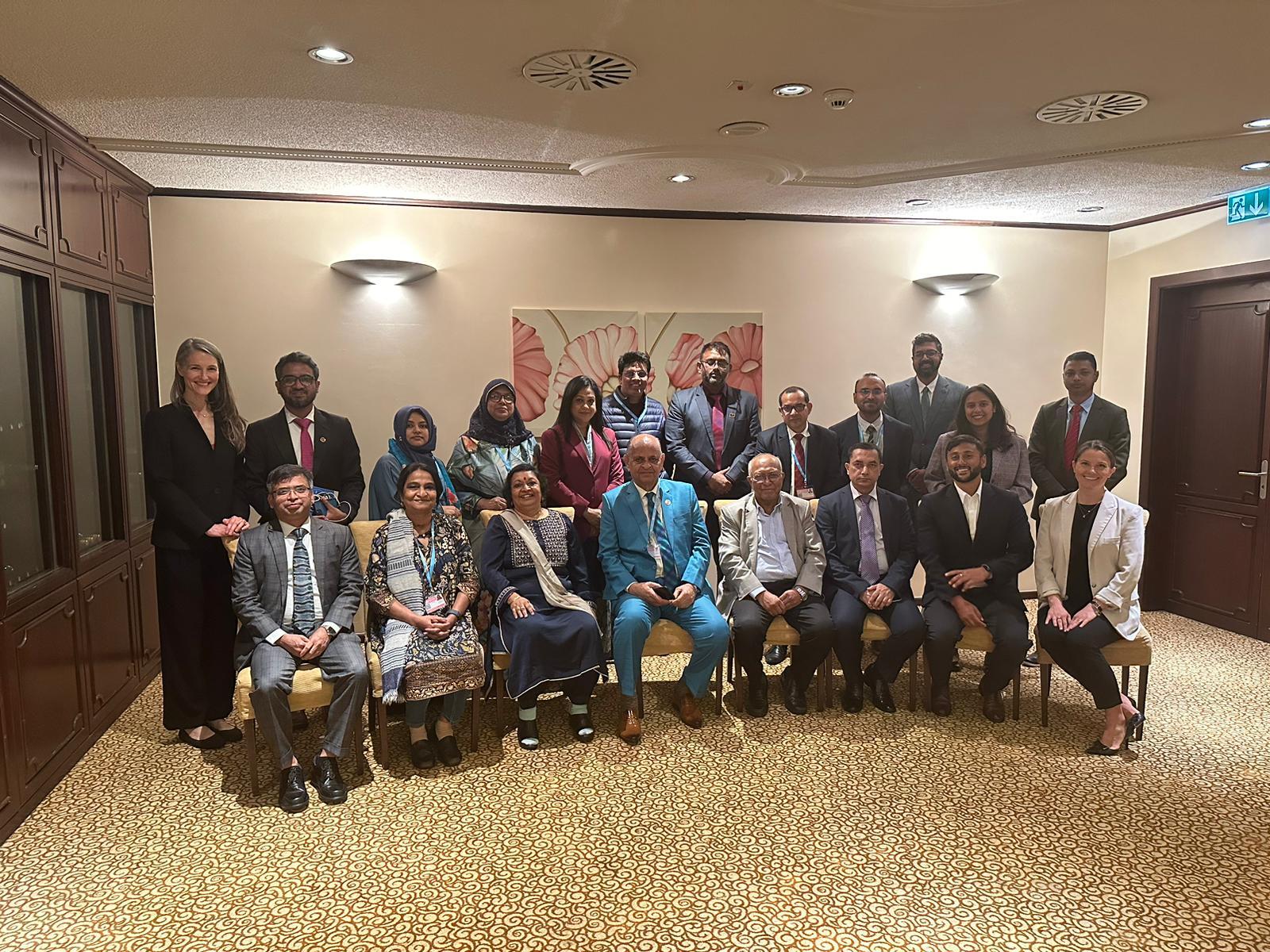
We also recently became members of the Partnership for Maternal, Newborn, and Child Health (PMNCH), a WHO affiliated body and the world’s largest alliance committed to advancing the health, well-being, and rights of women, children, and adolescents. During our week at the WHA, we got a chance to connect with the network and explore new avenues for collaboration.
Going far, together
Undoubtedly, our first time at the WHA was a memorable one, and we’re grateful for the learnings, insights, and conversations we’ve come away with.
Long term, our big dream is to have a resolution passed at the WHA on the critical need to incorporate family caregiving into the standard of care, with the support of our country partners. We also hope to have official WHO guidance or an operational strategy around inclusion of caregiver training and education into existing policies and programs, providing greater impetus for countries to adopt and implement their own programs.
At a very high-level, being at the WHA provided us with an opportunity to pull back the curtains on the critical role it plays within the global health policy development process. It also helped us delve deeply into understanding how country priorities intertwine with WHO policy platforms and drivers, and where best we can strategically make an impact. Lastly, our presence at the WHA allowed us to deepen existing relationships and develop new relationships at the regional- and national-level, and we will continue to cultivate these networks over time. Taken together, these learnings will help us refine and solidify our advocacy plan going forward.
There is still a lot of work to be done toward making family caregiver training a standard practice in health systems worldwide, and we are grateful to have had the chance to make it a more concrete reality at the WHA this year.
Special thanks to Tanaya Jagtiani for bringing this article to life!
